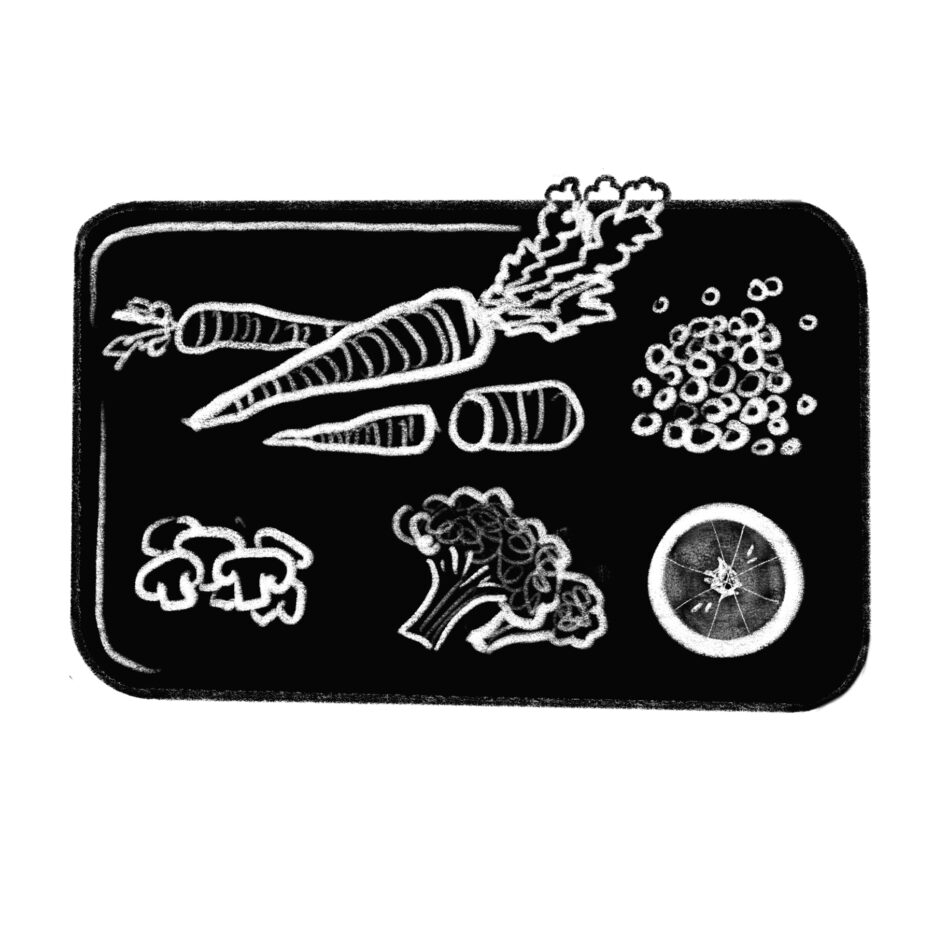
Image by Ivy Sanders Schneider

Image by Ivy Sanders Schneider
When school children in Lyon, France, returned to classes this fall, they had a critical decision to make: are they a vegetarian Jeune Pousse, or an omnivorous Petit Bouchon?
According to a sample menu, the former, which translates to “Young Sprout,” will enjoy a tandoori-spiced stew with chickpeas, lentils, and vegetables. The latter, named with a nod to traditional Lyonnais restaurants, will be served veal in a tomato-mushroom sauce. Radishes and butter, tomatoes in a shallot vinaigrette, rice, cheese from nearby Auvergne, and poached apricots will round out both meals. In the gastronomic capital of a gastronomically obsessed country, the choice between the two lunch menus — one which offers meat and fish twice per week, the other not at all — may be fraught. But the fact that these options exist represents a major achievement.
Lyon was rocked when, in February 2021, the city’s newly elected Green mayor, Grégory Doucet, temporarily took meat off the school lunch menu entirely. Furious livestock farmers hauled their cows to city hall and used their tractors to block traffic, to the cheers of national officials. Julien Denormandie, Minister of Agriculture and Food, tweeted, “Stop putting ideology on the plates of our children!” The Minister of the Interior, Gérald Darmanin, denounced the “moralist, elitist policy of the Greens” and the “scandalous ideology” driving the change.
But it wasn’t actually a new policy at all. The same decision had been taken by the previous mayor, in May 2020, for the same reason: to serve a hot, four-course lunch to more students in less time. That mayor, however, was a member of Emmanuel Macron’s centrist party, not the Greens. And he hadn’t come into office promising to shake up school food, as Doucet had.
The Lyonnais call this shakeup la transition alimentaire. A global shift to a diet emphasizing plant rather than animal protein could lead to substantial decreases in greenhouse gas emissions, and school districts around France, from Grenoble to Paris, have moved to make vegetarian meals the norm.
Despite an inauspicious start, the Lyon mayor’s office has remained optimistic that its policies will be not just accepted, but copied. “The dynamic that we’re trying to launch, it’s global,” said Gautier Chapuis, who is in charge of executing food policy, last November. “We are changing our approach and our image as the global capital of gastronomy.” At least in the city famous for boiled calf’s head and tripe sausage, the change seems to be working: according to Chapuis, about half of students have opted for less meat.
Annie Crabill writes about international affairs.